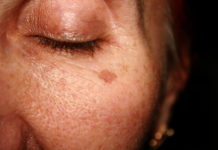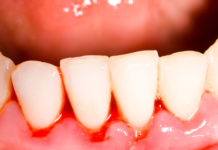Sleep apnea is a potentially serious sleep disorder in which breathing stops and starts continually. You can have sleep apnea if you snore loud and you feel tired even after a good night’s sleep.
3. Principal Types
Obstructive sleep apnea, the most common form that occurs when the throat muscles relax.
Central sleep apnea, which occurs when your brain does not emit appropriate signals to the muscles that control breathing.
The complex sleep apnea syndrome, also known as mixed sleep apnea emerging central sleep apnea, occurs when someone has obstructive sleep apnea AND central sleep apnea.
The signs and symptoms of obstructive and central sleep apnea overlap, making the type of sleep apnea more difficult to determine.
2. The most common signs and symptoms of obstructive and central sleep apnea are:
- Strong and loud snoring, which is usually more important in obstructive sleep apnea
- Episodes of cessation of breathing during sleep were noticed by another person.
- Sudden awakening accompanied by shortness of breath, indicating more likely central sleep apnea.
- Wake with dry mouth or sore throat
- Early morning headache
- Difficulty staying asleep (insomnia)
- Excessive daytime sleepiness (hypersomnia)
- Concentration problems
- Irritability
1. Consult a health care practitioner if you experience these signs
- Snoring strong enough to disrupt the sleep of others or yourself.
- Shortness of breath, panting or choking that wakes you up
- Intermittent breaks in your breathing during sleep
- Excessive sleepiness during the day, which can put you to sleep while you work, watch television or drive
Many people do not think of snoring as a sign of something potentially serious and all those who suffer from sleep apnea snore. But make sure to talk to your doctor if you are experiencing a loud snoring, especially snoring that is punctuated by periods of silence.
Tell your doctor about any sleep problems that leave you chronically tired, asleep and irritable. Excessive daytime drowsiness (hypersomnia) may be due to sleep apnea or other disorders, such as narcolepsy. Treatment can alleviate your symptoms and can help prevent heart problems and other complications.
Source: Mayo Clinic


![[Photos] Why WD-40 Is Magic In Your Garden?](https://lifetonik.com/wp-content/uploads/sites/7/2019/08/WD40-Prices-Highres_Page_8_Image_0008-218x150.jpg)





![[Photos] Take A Look Of The Obama’s New Home Before It’s Banned](https://lifetonik.com/wp-content/uploads/sites/7/2019/07/Obama1-218x150.jpg)

![[Slideshow] Celebrity Homes: 21 Of The Most Luxurious](https://lifetonik.com/wp-content/uploads/sites/7/2019/07/Taylor-Swift-218x150.jpg)
![[Slideshow] More Parents Are Now Gluing Pennies to the Bottom of their Kid’s Shoes](https://lifetonik.com/wp-content/uploads/sites/7/2019/07/Keep-Them-Entertained-218x150.jpeg)
![[Photos] 20 Fashion Mistakes That Too Many Women Make!](https://lifetonik.com/wp-content/uploads/sites/7/2019/07/5-style-mistakes-that-make-you-look-frumpy-featured-218x150.jpg)



















![[Gallery] 25 Discounts For Seniors To Which You Are Entitled Without Knowing It](https://lifetonik.com/wp-content/uploads/sites/7/2019/08/EAZxECUXUAAvNZR-218x150.jpg)
![[Slideshow] Here’s the salary of every governor in the United States](https://lifetonik.com/wp-content/uploads/sites/7/2019/08/Charlie-Baker-218x150.jpg)
![[Photos] No One Will Want To Buy This House After Seeing These Pictures](https://lifetonik.com/wp-content/uploads/sites/7/2019/08/terrible-real-estate-photos-2-5c35e727c9f95__700-218x150.jpg)



